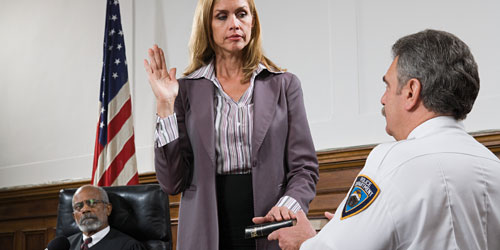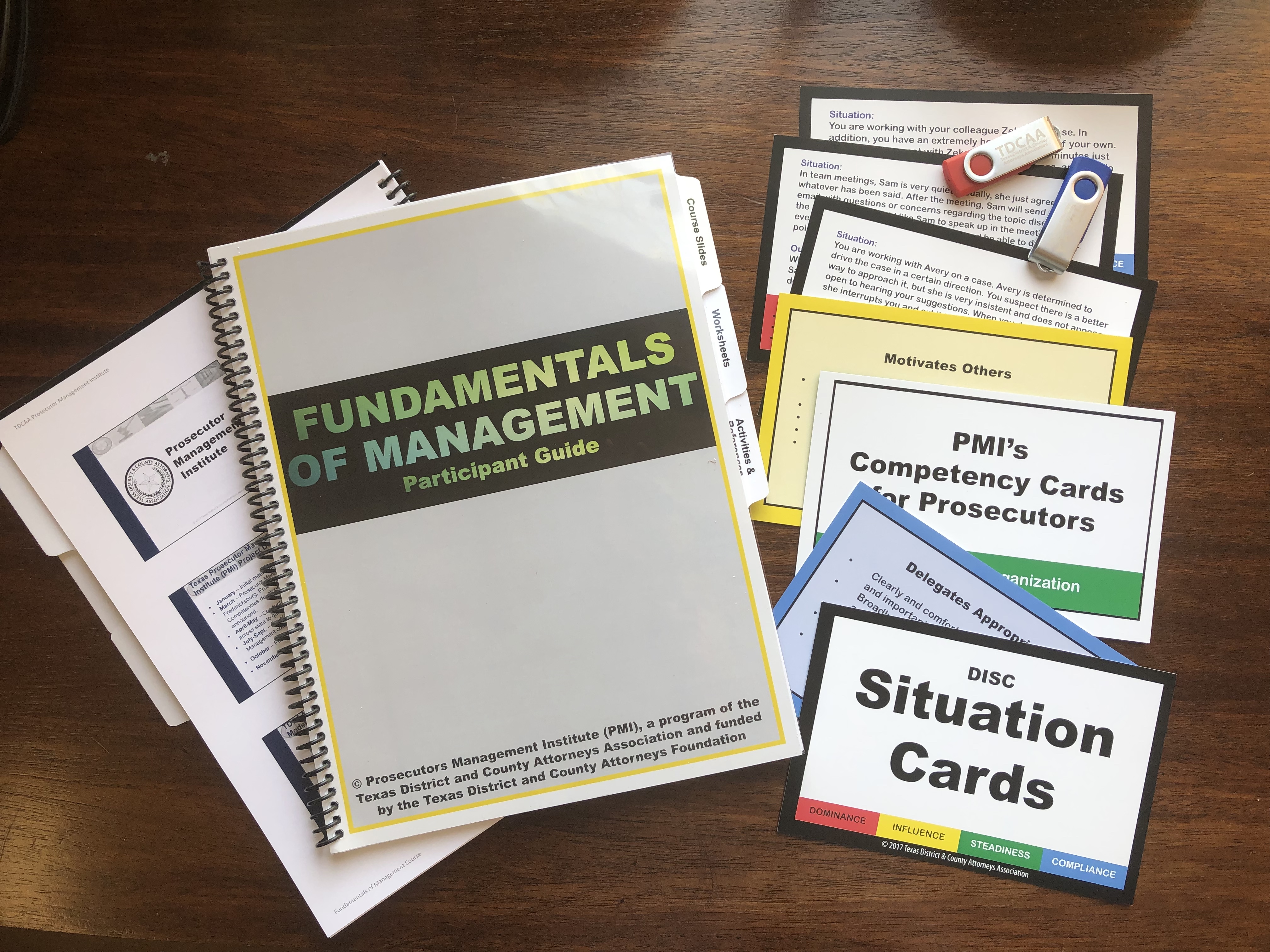Texas Court of Criminal Appeals
Vandyke v. State
No. PD-0283-16 12/20/17
Issue:
Does the savings clause in SB 746, which decriminalizes the failure to comply with the terms of sex offender treatment and applies retroactively to any defendant whose appeal was pending, violate the separation of powers clause of the Texas constitution by usurping the governor’s power to grant clemency?
Holding:
No. “The Legislature’s decision to make, alter, and repeal laws can violate the separation of powers when it grants trial courts the discretion to lower a particular defendant’s sentence after sentencing or exempt a defendant from serving his or her sentence based on new legislation.” The governor’s power of clemency affects only the punishment to which an individual is subjected, not the underlying conviction. Conversely, when the legislature retroactively decriminalizes conduct, pending convictions predicated on that conduct are invalid. Exercising the legislative right to determine criminal conduct does not usurp the governor’s power to grant clemency. Read opinion.
Dissent (Yeary, J.):
“Today, the Court holds that a legislative act nullifying an existing criminal conviction nevertheless does not impinge upon our state constitutional mandate of separation of powers among the three discrete departments of government… The Court’s holding is contingent upon its understanding of what constitutes a ‘pardon’ in contemplation of the clemency power. Although I admit that the Court’s understanding derives from relatively long-standing case law, I believe there is an older, broader definition of ‘pardon’ that has greater constitutional provenance and is far more likely to correspond to the Framers’ original conception of what a pardon—or at least a full pardon—does. By my understanding of ‘pardon,’ the Legislative Department in this case encroached upon an Executive Department prerogative.” Read opinion.
Commentary:
The odds of the disputes in this case arising in subsequent case law are low. The disputes in this case center upon the court’s view of a 1941 case of the court, so they have not arisen often. And it is not likely that the Legislature will decriminalize previous criminal conduct while convictions for that conduct are pending on appeal. But if you want to learn more about the concept of the Governor’s power to pardon, and the Legislature’s power to repeal, look no further than these two well-written opinions. You will learn more than you ever thought possible about these two concepts (with a little separation-of-powers law thrown in), and you will see the best of the scholarship of the court on display.
Marcopoulous v. State
No. PD-0931-16 12/20/17
Issue:
Do a defendant’s repeated history of visiting a bar known for narcotics sales, his short time spent at the bar, and “furtive gestures” immediately prior to being pulled over constitute probable cause to satisfy the automobile exception to a warrant requirement for search of a vehicle?
Holding:
No. Furtive gestures alone are not a sufficient basis for probable cause. Considering the defendant’s brief stop at a bar known for narcotics sales in conjunction with the furtive gestures is still an insufficient basis for probable cause. “We wish to stress three aspects of our decision today. First, as with any probable cause determination, it is fact-driven. We do not hold that observations akin to [the arresting officer’s] will never meet the standard of probable cause; we simply conclude that [the Defendant’s] observed behavior was insufficient in this case. Second, it was only barely insufficient. We do not hesitate to say that, had [the officer] observed any additional indicators of drug activity, either at [the bar] or within [the defendant’s] car, the scale would tip in favor of a finding of probable cause. Finally, although probable cause to search the vehicle was lacking on these particular facts, we do not conclude that the Fourth Amendment was necessarily violated—we decide only that the automobile exception is unavailing.” Read opinion.
Dissent (Keel, J.):
The defendant has never challenged the lawfulness of his arrest for a traffic offense. After arrest, cocaine was found on his person and in his truck. Police officers may search a person incident to a lawful arrest. The conviction for possession of less than a gram of cocaine can be upheld based on the cocaine found on the defendant’s person without addressing the legitimacy of the vehicle search. Alternatively, the nature of the bar as a front for drug sales, defendant’s previous visits to the bar, his brief stay at the bar on the day in question, and his furtive movements after seeing the patrol car behind his vehicle are together sufficient to support a finding of probable cause to search under the automobile exception. Read opinion.
Commentary:
The bottom line of this case is that the State has lost the legal dispute that was before the court, but the case was remanded back to the court of appeals to discuss other possible bases for upholding the trial court’s ruling. And one need look no further for that alternative basis that Judge Keel’s dissenting opinion. If the defense presents this case in hopes of defeating an automobile-exception argument, point the judge to the last part of the majority opinion titled “Conclusion,” in which the majority makes it clear how limited the holding is in this case.
Texas Supreme Court
Tafel v. State
No. 16-1019 12/15/17
Issue:
Are forfeiture proceedings civil in nature? Does conviction for possession of a weapon under Penal Code chapter 46 authorize a forfeiture under Code of Criminal Procedure art. 18.19(e)?
Holding:
Yes and No. A forfeiture proceeding under Code of Criminal Procedure chapter 18 is an in rem proceeding against the property itself, not against the owner, and is therefore civil in nature. Art. 18.19(e) mandates forfeiture of the weapon when a defendant is convicted of “an offense involving the use of the weapon.” This is not the correct proceeding for forfeiture following a conviction for possession of a weapon under Penal Code chapter 46. Code of Criminal Procedure art. 18.19(d) allows the return of confiscated weapons to a defendant who receives deferred adjudication under chapter 46, with some exceptions. To give full effect to art. 18.19’s bifurcated design, the only applicable forfeiture provisions for the possession conviction are under art. 18.19(d). Read opinion.
Commentary:
If you ever seek to have a defendant’s guns forfeited to the State, read this decision and follow the requirements of the appropriate subsection of Art. 18.19. The court also makes it clear, if it needed clarifying, that a property seizure under Chapter 18 of the Code of Criminal Procedure is a civil law matter.
Texas Courts of Appeals
Rush v. State
No. 10-16-00353-CR 12/13/17
Issue:
Is walking away from an officer when lawfully detained sufficient evidence of “fleeing”?
Holding:
Yes. When in a motor vehicle, “fleeing” has been held as “anything less than prompt compliance with an officer’s direction to stop.” High speed is not a requirement, only an attempt to get away from the officer. “Fleeing slowly is still fleeing.” The court applies the same standard to fleeing on foot. The defendant fled when he exited the passenger side of the detained vehicle, walked away, and did not stop when commanded to by the detaining officer. Read opinion.
Commentary:
This is an interesting decision. It is short and to the point. But the court cites to appropriate controlling case law. This decision should help for any cases involving a dispute regarding the lawfulness of the detention of a passenger or whether a person walking away is, in fact, fleeing.
Cormier v. State
No. 01-16-00566-CR 12/19/17
Issue:
Is a legal definition for “imminent” required in the jury instruction for a duress defense?
Holding:
No. The Penal Code contains no definition for “imminent.” Although the Court of Criminal Appeals has defined “imminent” in other contexts, such as evaluating the sufficiency of the evidence, this does not supplant the Legislature’s authority to define the term in the statute to instruct a jury on duress. The definition in one context by the Court of Criminal Appeals does not require a trial court to define a term that the statute does not. “Imminent” is used frequently in the Penal Code in a variety of contexts, all without definitions. The lack of a definition for the term and its frequent use as an undefined modifier indicate that “imminent” has a common meaning, and it is within the trial court’s discretion to refuse to submit a definition to the jury. Read opinion.
Commentary:
This decision follows the overriding general rule that, if a word or phrase is not defined in the criminal statute, it should not be defined in the jury charge, regardless of whether it may or may not have been defined in a court decision.
Announcements:
Spots are still available for TDCAA’s January 2018 Prosecutor Trial Skills Course. If you are a new or returning Texas prosecutor, or just looking for a refresher, this course is for you. Come spend an engaging week in San Antonio learning the ropes with prosecutors from all over this great state. The course will be held this coming January from the 7th to the 12th. Registration and more detailed event information can be found here.
There will be no case summaries next week. Wishing everyone happy holidays and all the best in the new year!



